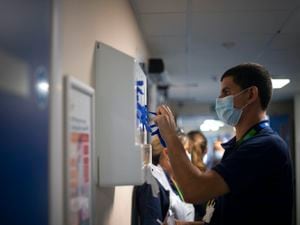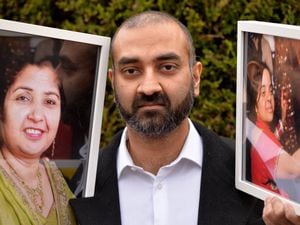Sandwell hospital trust develops plan in preparation for Covid third wave
Hospital chiefs in Sandwell and West Birmingham who fear the area could be “one of the hardest hit” by a third wave of Covid-19 have developed a “surge plan” to protect services.

They say although the number of Covid in-patients being treated in recent weeks has remained “very stable” at less than 20 they still have the fourth-highest number in the Midlands.
Concerned over the Delta variant of the virus, which was first found in India, and studies suggesting that it spreads more easily, the Sandwell and West Birmingham Hospitals NHS Trust board has called for continued vigilance in managing Covid-19 particularly for patients arriving at its hospitals through emergency departments.
Referring to a Covid report at the trust board’s meeting on Wednesday (June 9), interim chief executive Richard Beeken said: “There has been a huge focus on post-Covid recovery. If there is a third wave we could one of the hardest hit.
“This report demonstrates that we need to be on our guard against a significant third wave of Covid.
“To that end across the system we have developed a third wave surge plan.”
Mr Beeken said the plan, a “pick up and go” document for responding to future surges, is subtly different to its predecessors because of the vaccination programme in the community.
It covers such issues as the redeployment of staff, the identification of “trigger points” for escalation at each stage of a surge and the switches of the virus to different geographical locations.
The trust said it has also developed new guidance for staff in the emergency department to ensure patients are screened for Covid symptoms and asked about recent travel to India and current hot- spots in the UK such as the North West.
Trigger warnings
The meeting heard, however, that the trust’s last remaining Covid ward – the respiratory ward at Birmingham’s City Hospital – is being converted into a non-Covid ward. Segregated areas and side rooms will accommodate any Covid patients.
Non-executive director Harjinder Kang asked what the trigger point is for reverting wards back for Covid treatment.
“We have early trigger warnings in place,” said the trust’s chief operating officer Liam Kennedy who pointed to a 10-day marker between increases in community infections and hospital admissions.
“We have pulled a lot of learning together to amalgamate into a revised surge plan.”
On the delivery of the vaccine programme non-executive director Councillor Wassem Zaffar questioned the approach of GPs in West Birmingham.
“The approach there has been very different to other areas of the country,” he said.
“I don’t think they have been proactive enough.”
Mr Beeken said he did not have enough evidence to comment.
The vaccination rate for staff at the trust stands at just below 80 per cent.





